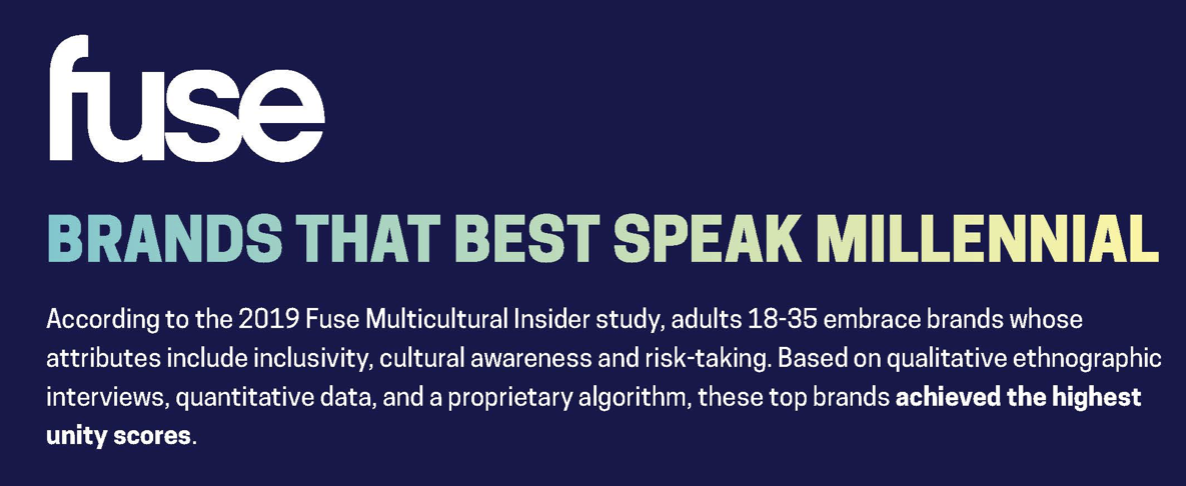Millennials value unity more than diversity, study finds

Nearly nine in 10 millennials like when a brand appeals to more than one person.
This is really interesting research reported by Lindsay
Stein. It echoes our experience that the next step in D&I work has
to focus on inclusion and inclusivity as a leadership skill.
“Millennials – often referred to as the “me” generation – should
actually be referred to as the “we” generation, according to a new Fuse
Media study that reveals how much this cohort values inclusivity.
The 2019 Fuse Multicultural Insider research, commissioned by Fuse
and conducted by NRG, found that millennials (18 to 35 years old) view
the notion of “unity” as two times more valuable than diversity, and 55%
of millennials believe diversity isn’t inclusive enough. Insights for
the research came from 1,500 millennials and 500 Gen Xers between 36 and
49 years old.
“This study amplified the idea that this subset of adults is
passionately seeking unity – and what brings us together – while
defining diversity as couched in what sets us apart. This is something
we have observed both with our audience and the millennial and younger
colleagues, talent and partners with whom we work every day,” said Mark
McIntire, head of marketing, Fuse Media.
Nearly nine out of 10 millennials (88 percent) said they like when a
brand appeals to more than one person, while 85 percent agree that a
brand should be something everyone can enjoy, according to the research.
The study also revealed that 85 percent of millennials think brands
should market to people based on interests and passions rather than
physical traits, and 81 percent like when brands give underrepresented
groups a platform and voice.
Most millennials (77 percent) said their favorite brands value
inclusivity, with 79 percent saying they want ads to showcase diversity
and 78 saying it’s important for ads to be “representative of me.”
Outside of diversity and inclusion, millennials in the study said they find brands more trustworthy than social media influencers or celebrities and more influential than the government.”

